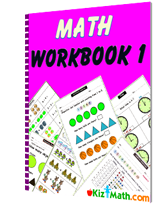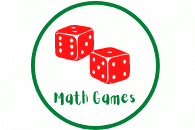Top or Bottom Quiz - Learn Positions
In the bustling world of kindergarten education, where crayons meet numbers and blocks build foundations, math holds a pivotal role. Introducing math quizzes to kindergarteners not only adds a layer of fun but also nurtures their cognitive abilities. Among the various quiz formats, the "Top or Bottom" math quiz stands out as a particularly engaging method.
Benefits of Math Quizzes for Kindergarteners
Math quizzes for kindergarteners offer multifaceted benefits. They serve as catalysts for enhancing cognitive skills, fostering confidence in math abilities, and transforming the learning process into an enjoyable experience. Through interactive engagement, children grasp mathematical concepts more effectively, laying a strong foundation for future academic pursuits.
Top or Bottom Math Quiz: Explained
The "Top or Bottom" math quiz simplifies mathematical concepts by introducing the fundamental notions of spatial orientation. Through playful exercises, children learn to distinguish between top and bottom, a crucial skill in understanding geometric shapes, positions, and directions.
How to Implement Top or Bottom Math Quiz
To implement the "Top or Bottom" math quiz effectively, educators can create engaging quiz materials incorporating colorful visuals and interactive elements. By seamlessly integrating these quizzes into daily lessons, teachers provide students with opportunities for hands-on learning, reinforcing mathematical concepts in a dynamic manner.
Engagement Strategies
Interactive activities such as group discussions, role-playing, and hands-on manipulatives captivate young minds, fostering active participation and deeper understanding. Visual aids such as charts, diagrams, and interactive apps further enhance engagement, making learning a delightful journey of exploration.
Monitoring Progress
Assessing students' understanding of mathematical concepts is essential for tracking progress and identifying areas for improvement. Regular evaluations, both formal and informal, allow educators to tailor their teaching strategies to meet the diverse needs of each child, ensuring optimal learning outcomes.
Adapting to Different Learning Styles
Recognizing and accommodating various learning styles is paramount in ensuring inclusive education. By offering a range of challenges tailored to individual preferences and abilities, educators empower students to explore math at their own pace, instilling a sense of confidence and autonomy.
Addressing Common Challenges
In the journey of mathematical discovery, challenges are inevitable. Overcoming the fear of failure and handling frustration are vital lessons that math quizzes impart. By fostering a supportive learning environment and encouraging perseverance, educators equip children with the resilience needed to tackle mathematical challenges with confidence.
Parental Involvement
The role of parents in supporting math education cannot be overstated. By engaging in collaborative activities and providing opportunities for practice at home, parents reinforce classroom learning and nurture a positive attitude towards math. Open communication between parents and educators ensures a holistic approach to children's mathematical development.
Conclusion
In conclusion, math quizzes, particularly the "Top or Bottom" quiz, offer a myriad of benefits for kindergarteners. By leveraging interactive engagement, tailored challenges, and parental involvement, educators can ignite a lifelong passion for math in young learners, paving the way for academic success and personal growth.
FAQs
-
How often should math quizzes be conducted in kindergarten?
- Math quizzes can be conducted as part of regular lessons, with frequency varying based on curriculum goals and individual student needs.
-
Are math quizzes suitable for all kindergarteners?
- Yes, math quizzes can be adapted to accommodate different learning styles and abilities, ensuring inclusivity for all students.
-
What if a child struggles with the "Top or Bottom" concept?
- Educators can employ various strategies such as visual aids, hands-on activities, and one-on-one support to help children grasp the concept at their own pace.
-
How can parents support math learning at home?
- Parents can engage in math-related activities, read math-themed books, and reinforce concepts through daily routines such as counting objects or measuring ingredients while cooking.
-
What role do math quizzes play in kindergarten curriculum standards?
- Math quizzes align with curriculum standards by providing opportunities for students to demonstrate understanding of mathematical concepts and develop problem-solving skills.

 Math Quizzes Online - Addition, subtraction, Geometry, Comparison, Algebra, Shapes, Time, Fractions, Decimals, Sequence, Division, Metric system, Logarithms, ratios, probability, multiplication
Math Quizzes Online - Addition, subtraction, Geometry, Comparison, Algebra, Shapes, Time, Fractions, Decimals, Sequence, Division, Metric system, Logarithms, ratios, probability, multiplication
These quizzes range from multiple choice math quizzes, gap fill quizzes, matching exercises, hotspot quizzes with graphics and more for interactive math practice.
 This exercise will help kids practice Math in a fun way. Kids related to games very well. From preschool / kindergarten to grade 6 levels of math games. There are games for the following topics:
This exercise will help kids practice Math in a fun way. Kids related to games very well. From preschool / kindergarten to grade 6 levels of math games. There are games for the following topics:
The games include among other : memory games, Walk the plank, Fling the Teacher, En Garde Duel, Basketball Game, Penalty Shoot and more.
Website General Content:
math activities for children, maths for kids, math games and exercises, math worksheets, printables, online, interactive, quizzes, for kindergarten, preschool, first grade, math practice, for teachers and parents, teach your kids math, help kids learn maths



